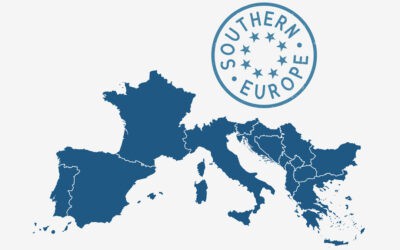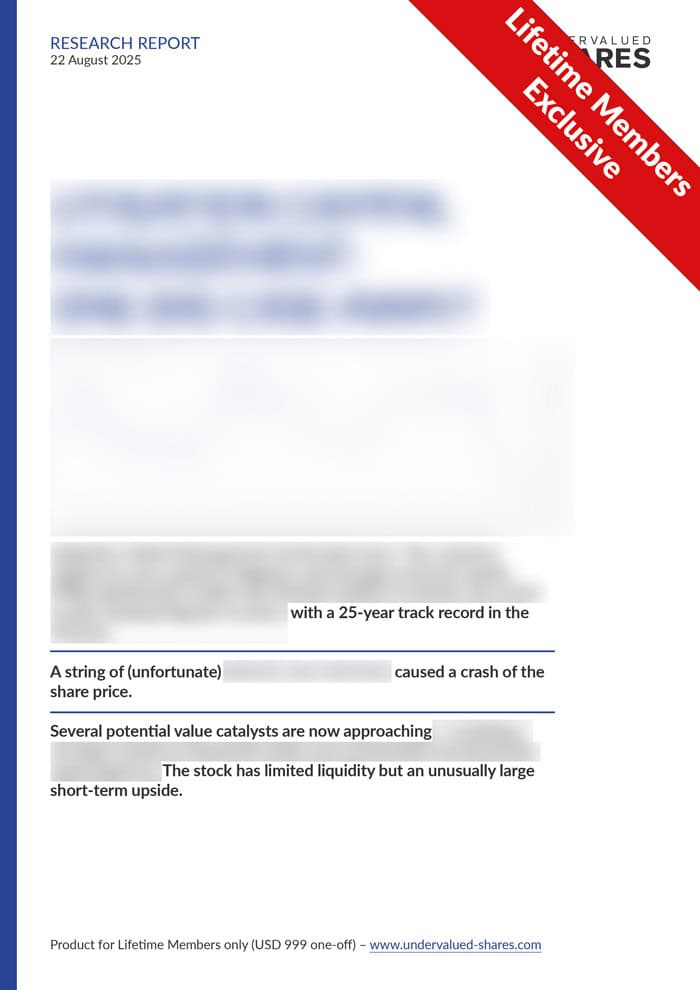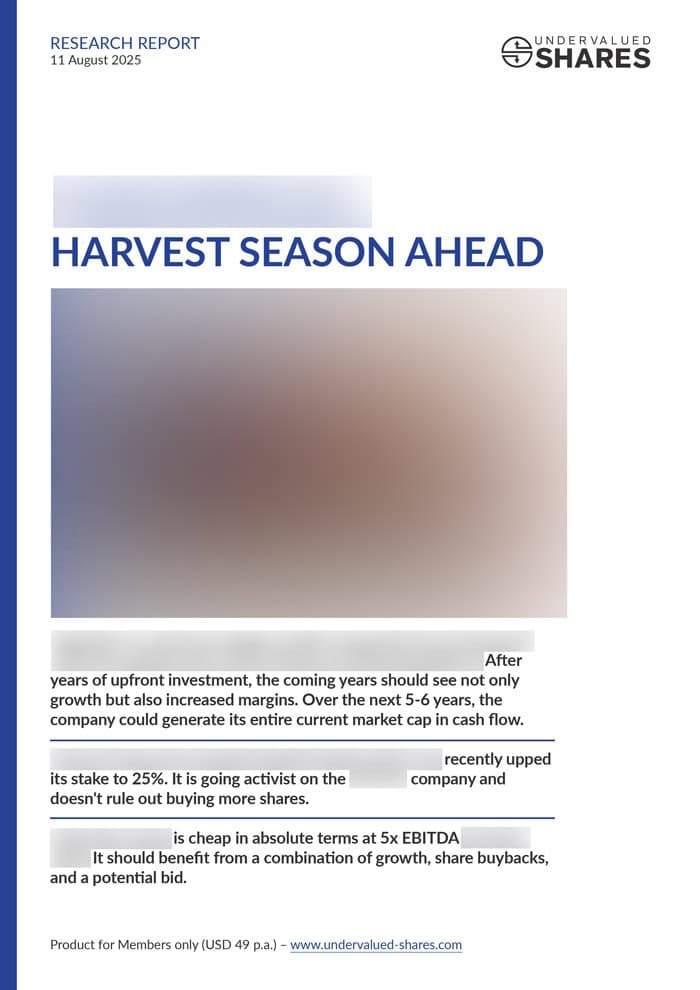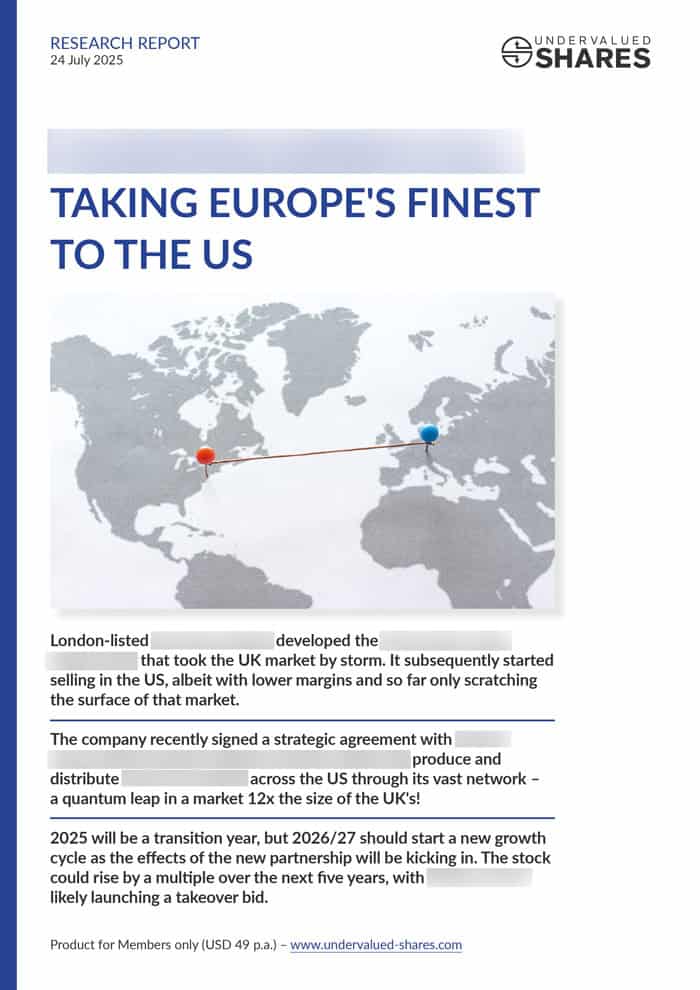Future PLC owns publications with hundreds of millions of readers. Will AI make its stock tank further, or spark its renaissance?
Texas – a “country” to invest in?
But the reality today is quite different, and more likely to involve bankers, tech entrepreneurs, and media stars.
JP Morgan now employs more people in Texas than New York, Goldman Sachs is building a major new campus in Dallas, and the newly formed Texas Stock Exchange is gearing up to become a serious competitor to the New York Stock Exchange.
If Texas were a country, it would rank as the world's 8th largest economy. Its GDP has already surpassed Italy and is closing in on France.
How is all this relevant for private investors?
What is there to invest in?
Yours truly went to find out.

Staggering statistics
The speed of change in Texas and the scope of its success are easy to underestimate.
Dallas isn't trying to become a major financial centre, it already is the second-largest financial hub in the US, surpassed only by New York.
Texas's famously hands-off approach to taxes and regulations hasn't just attracted Elon Musk, who moved SpaceX and X to the state. Today, Texas is home to more Fortune 500 companies than any other state. Companies have voted with their feet by moving to Texas. Notable firms now headquartered in the state include Charles Schwab, Fidelity, Caterpillar, Hewlett-Packard, and Dropbox.
Texas has come a long way from being known primarily as an oil and gas state. While Houston remains the energy capital of the US, it's also become a hub for cleantech companies.
In fact, even in renewable energy, Texas now leads the nation. It dominates wind power, accounting for a quarter of the country's installed capacity – more than twice that of the next-largest wind energy producing state. That's in addition to producing 2m barrels of oil per day, putting Texas on par with Norway.
Energy in Texas is also cheap. A kilowatt hour of electricity costs just 6.25 cent, compared to 19 cent in California. Cheap energy has made Texas the second-largest data centre in the US, behind Northern Virginia.
Why the ongoing boom?
Just as California and New York are increasingly seen by many as fairly anti-business, Texas has long been viewed as pro-business.
Its former governor Rick Perry, who served from 2000-2015, made a point to keep government out of business. During his 14 years in office, he not only lowered taxes but also slashed red tape and overhauled the state's legal system. Last year, Texas introduced a business court system designed to make legal cases more efficient and protect corporations from the kind of excessive lawsuits that have become common across the US.
As a result, seven of the 15 fastest-growing cities in the US are in Texas. Not one is located in California or New York State.
Dallas/Fort Worth, the Austin/San Antonio metropolitan area, and Houston now form the "Texas Triangle", a booming region of 20m people. It has grown into one of the world's largest and wealthiest urban mega regions.
Remarkably, Texas is even emerging as a serious competitor to Wall Street.
Stock listings going South
During the pandemic, much was made of Florida becoming "Wall Street South".
However, it's Texas that is now posing a serious challenge to New York's dominance at least when it comes to stock trading.
Like other Western nations, even the US has faced a shrinking stock market. Over the past three decades, the number of publicly listed companies in the US has fallen by 40%. Rising costs of going public and more complex regulations have made many CEOs and entrepreneurs think twice about listing.
The newly launched Texas Stock Exchange aims to change that, promising lower listing costs and less regulation.
Establishing a new exchange when the New York Stock Exchange (NYSE) and Nasdaq are so firmly entrenched will be a real uphill battle. That said, the new venture has heavyweight backers, including BlackRock and Citadel.
Even NYSE has started to take the venture seriously and has moved parts of its operation to Dallas, while Nasdaq is planning a regional headquarters in Texas. The two incumbents are working to attack the challenger on its home turf.
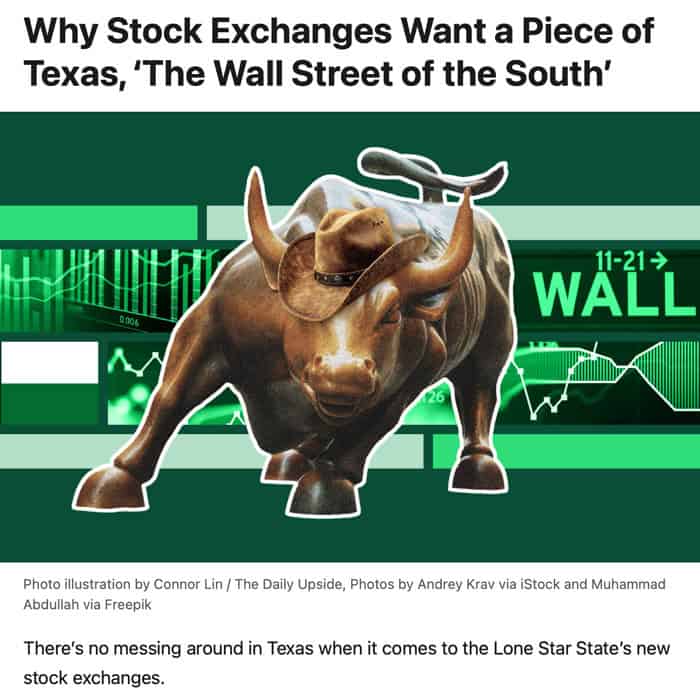
Source: The Daily Upside, 27 April 2025.
The Texas Stock Exchange aims to begin trading in 2026, which will be a huge milestone when it happens. By that time, Goldman Sachs is expected to nearly double its Dallas-based workforce, from 5,000 to close to 10,000 employees.
Texas is also seeing rapid growth of high-net-worth investors and self-directed stock pickers. In the past, I could only gather a crowd of readers in more established places like New York or Washington. But recently, I hosted a dinner for Undervalued-Shares.com readers in Austin – and it was a "full house" with 16 participants. Even the map of my business is being redrawn by the Texas miracle!

Undervalued-Shares.com readers at a recent dinner in Austin.
If anything, all of this underscores that New York can no longer take its status as the US' #1 financial centre for granted. The city has become unaffordable for most people, it is held back by regulatory creep and sky-high taxes. Eventually, Texas will have enough critical mass to catch up with the traditional coastal power centres. During my recent trip to New York, just after visiting Texas, more than one contact in the Big Apple remarked that New York was at serious risk of Dallas closing the gap altogether.
That said, Texas is not without its own challenges. Political divisions remain sharp, and the state has to face up to the question whether it can allow yet more energy-intense companies to relocate to the state and put an ever-growing burden on the grid and energy supply. Costs are also rising across Texas, and the economics that attracted 2m new residents in just five years are no longer as attractive as they once were.
For example, once an affordable destination for idea-rich but cash-poor young people, Austin has become a gentrified city where good living now requires serious cash. Even Joe Rogan, the world's #1 podcaster, has relocated there. But as costs rise, less affluent artists and media creators have been priced out.
Texas still has a fair few metrics where critics say it is miles behind California and other states, and worsening housing affordability has begun to slow the population inflow. As with any major success story, new challenges inevitably emerge. Without a doubt, Texas is far from perfect.
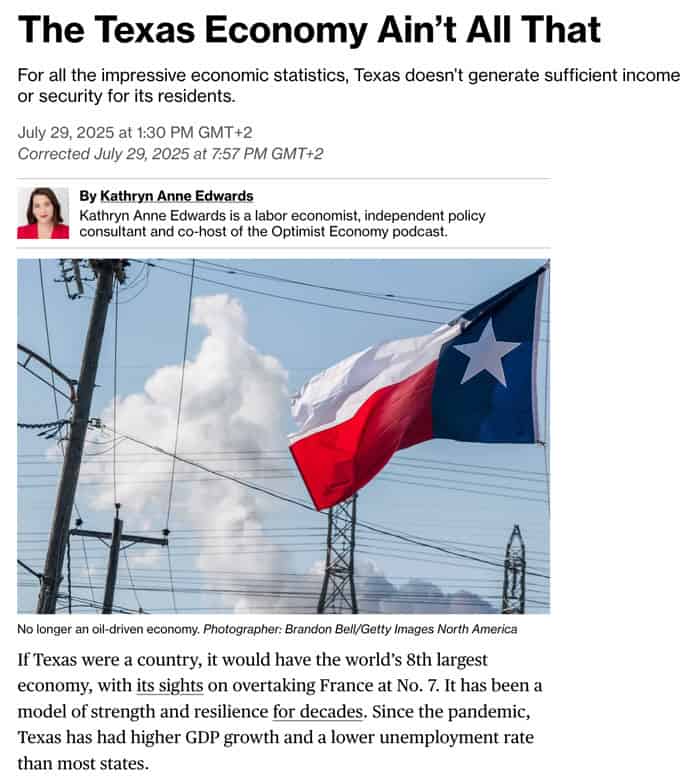
Source: Bloomberg, 29 July 2025.
It remains to be seen if the Texas Stock Exchange can attract a critical mass of listings and trading. Creating a new stock market is no small feat, given the inertia among users of existing markets.
That said, the gap between New York and Dallas as financial centres is likely to keep shrinking – for now, at least. Who would have thought?
Which begs the question, how to invest in Texas' ongoing economic success?
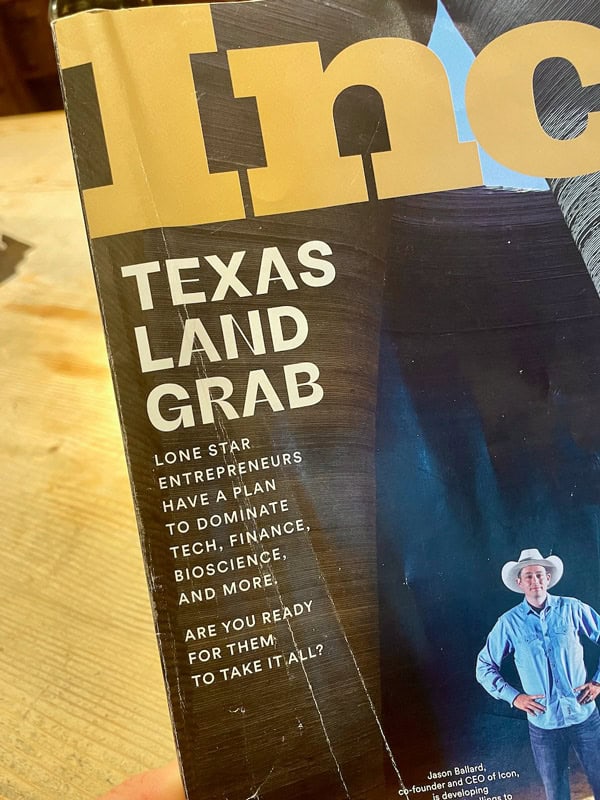
The summer 2025 issue of Inc. magazine.
How investors can get exposure
Texas has become the epicentre of US growth. Over the past ten years, the state's economy has grown at a rate of 3% p.a. compared to 2.3% p.a. for the rest of the country.
Chances are, your portfolio is already partially invested in Texas and benefiting from the state's pro-business environment. Many widely held large-cap firms are headquartered in the state, including:
- Tesla (ISIN US88160R1014, Nasdaq:TSLA)
- ExxonMobil (ISIN US30231G1022, NYSE:XOM)
- Charles Schwab (ISIN US8085131055, NYSE:SCHW)
- Oracle (ISIN US68389X1054, NYSE:ORCL)
- Waste Management (ISIN US94106L1098, NYSE:WM)
Including a US' company's headquarters in your investment checklist does make sense. Firms based in Texas are likely to benefit from a range of softer factors, such as fewer external pressures on "DEI" requirements that less business-friendly states force on companies (and their owners).
For those seeking broad exposure to the economic trends taking shape in Texas, the Texas Capital Texas Equity Index ETF (ISIN US88224A1025, NYSEARCA:TXS) offers a straightforward option. This ETF is designed to provide diversified access to companies headquartered in the state, with holdings primarily spread across energy, technology, and financials.
For stock-pickers eager to get exposure, some of the more obvious ideas to research in more detail include:
- Howard Hughes Holdings (ISIN US44267T1025, NYSE:HHH), a real estate developer specialising in large-scale planned communities, with large projects in Texas.
- Southwest Airlines (ISIN US8447411088, NYSE:LUV), a Dallas-based airline that began with routes just within Texas and remains a major beneficiary of the state's growth.
- Enterprise Products Partners (ISIN US2937921078, NYSE:EPD), operator of a Texas-centric network of energy infrastructure for producers and consumers of oil and natural gas.
There is a plethora of Texas-related opportunities out there. The companies mentioned above are just a few examples – listing all options would be beyond the scope of this article.
That said, what Undervalued-Shares.com will help with is for some of you to learn more about the situation on the ground – and have lots of fun along the way!
Texas extravaganza for private investors
If you like the idea of spending a few days getting to know Texas, learning about investing, and meeting like-minded people, the "Oscars of Investment Creativity" might be for you.
It's an event that my Texas-based friend Keith Blackborg and I have teamed up for. Keith is on a mission to help high-net-worth investors: his firm, Financial Journey, helps entrepreneurs build their own family office. Many of his clients are interested in off-the-beaten-path investment ideas.
To have them learn about these ideas, I had Keith carve out a slot at his annual "Passive Investor Event". Taking place from 23-25 October 2025 in Dallas/Fort Worth, this event will attract 100+ people – all of Keith's clients, as well as some other groups of investors and family offices.
At this dedicated slot, dubbed the "Oscars of Investment Creativity" and co-hosted by Cody Shirk of Explorer Equity, 5 of the 48 speakers at this year's Weird Shit Investing conference are going to present an investment idea. "Weird Shit Investing – Texas", if you wish!
Next week, Undervalued Shares readers will receive a detailed invite to:
- Attend all three days of "Passive Investor Event" at a special rate.
- As part of this, enjoy "Weird Shit Investing – Texas".
- Join an optional "Wild West" extra day on a private ranch.
- Meet many new people at dinners and informal gatherings.
A handful of readers are already booked to go!
This is your chance not just to read about "Y'all Street", but to witness Texas's explosive wealth boom firsthand.
This stock will explode when the Ukraine war ends (German-language video)
Join Moritz Hessel of Total Return Finanzen and myself as we are diving into two fresh investment ideas – including a company set to benefit from the reconstruction of Ukraine, and a commodity stock with an eye-catching dividend yield of up to 40%.
We also talk about stocks that have crashed but could still multiply, as well as previous stock picks with gains of up to 500%.
This stock will explode when the Ukraine war ends (German-language video)
Join Moritz Hessel of Total Return Finanzen and myself as we are diving into two fresh investment ideas – including a company set to benefit from the reconstruction of Ukraine, and a commodity stock with an eye-catching dividend yield of up to 40%.
We also talk about stocks that have crashed but could still multiply, as well as previous stock picks with gains of up to 500%.
Did you find this article useful and enjoyable? If you want to read my next articles right when they come out, please sign up to my email list.
Share this post:


